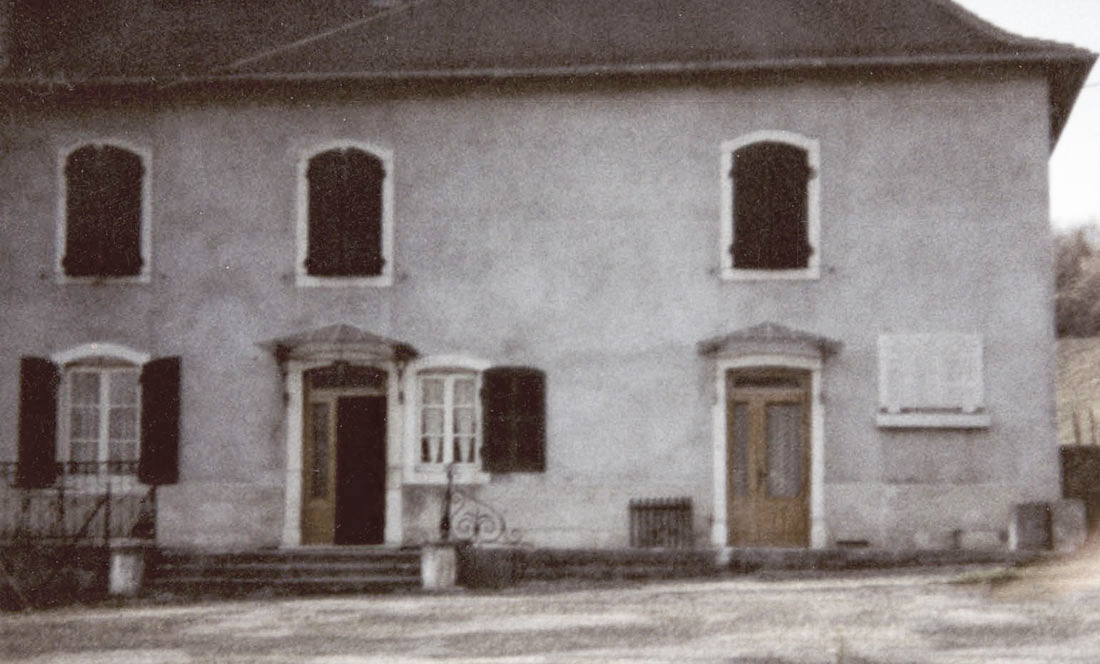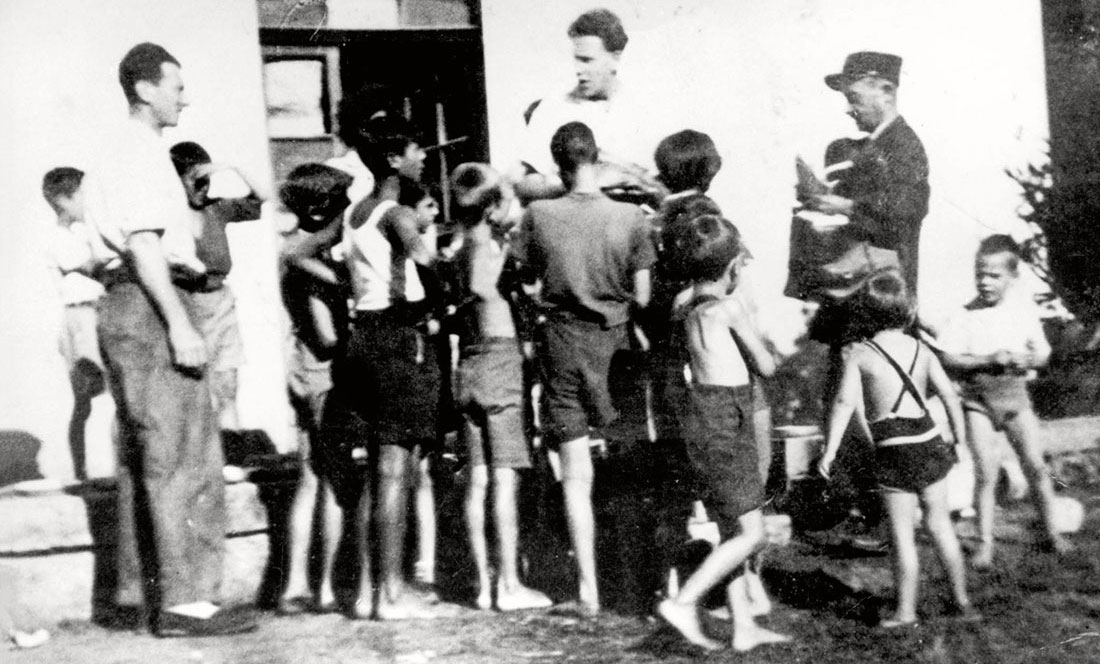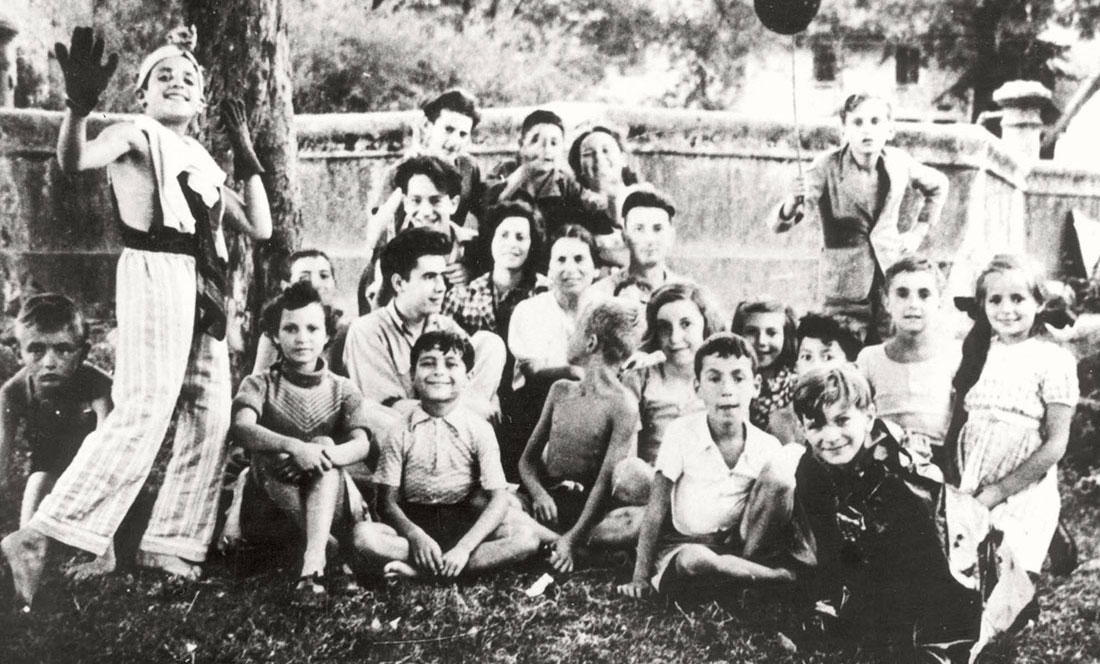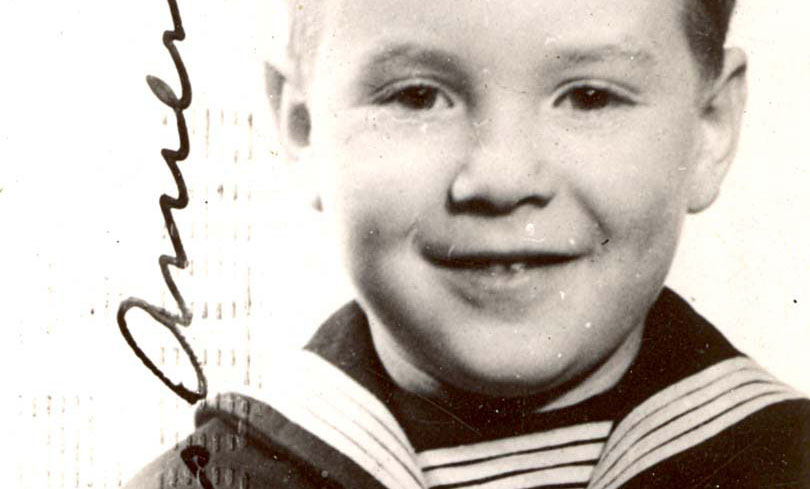Maison D'Izieu
Overview
"This crime, the crime of Izieu, can never be forgiven or forgotten"
(Pour le crime d'Izieu, pour ce Crime, il n'y a ni Pardon ni Oubli) Sabine Zlatin
In November 1942, Nazi Germany took control of the areas under the Vichy Regime. In April 1943, a children's home that provided refuge for dozens of children was established in the village of Izieu, formerly Vichy territory. The home, part of the OSE's network of hiding places, was run by Sabine Zlatin, Jewish nurse and OSE activist. Some of the children who lived there were French, while others had come from Belgium, Austria, Algieria, Germany and Poland. Several had arrived there from other children's homes in France.
Marcel Teitelbaum, less than four years old when he was brought to Izieu, recalls parting from his mother:
"I remember my mother leaving me there [in Izieu], and I was very anxious that I was being left behind… I looked for my mother, and I ran downstairs after her, into the street…"
In September 1943, with the Italian surrender to the Allies, the Germans occupied the area of Nice in southern France formerly under Italian control, and started to hunt down Jews in the vicinity. Approximately one month later, the Germans carried out a raid on a children's home near Marseilles in southern France, sending the occupants to Drancy. News of the raid reached the other children's homes in southern France, further eroding their sense of security. The directors of the OSE made the decision to evacuate the children and gradually close down the children's homes. Georges Garel's rescue network ultimately took responsibility for the majority of the children, some of whom were smuggled into Switzerland.
Despite the fact that the children's home in Izieu was in an out-of-the-way place and didn’t attract attention, the decision was made to evacuate the children hidden there too. On 3 April 1944, Sabine Zlatin travelled to Montpellier to look for hiding places for the children in her care.
On the morning of 6 April 1944, members of the Lyon Gestapo who had been tipped off by an informant carried out a raid on the children's home in Izieu and arrested everyone there. 44 children aged 4-17, and seven staff members who had been taking care of them, were incarcerated in the prison in Lyon, and were deported to Drancy the following day. The deportation order was issued by Klaus Barbie, head of the Gestapo in Lyon. Barbie reported the arrest of the children and adults at the children's home in a telegram that he sent to Paris. During the children's detention in Lyon, the Germans discovered the whereabouts of some of their family members, who were also then taken to Drancy and later deported to their deaths in Auschwitz.
During the raid on Izieu, Leon Reifman, a medical student who took care of the sick children, managed to escape and hide in a nearby farm. His sister, Dr. Sarah Lavan-Reifman, who was the children's home doctor, his parents, Eva and Moisz-Moshe and his nephew, Claude Lavan-Reifman also lived in the home. They were all murdered at Auschwitz. Miron Zlatin, Sabine Zlatin's husband who ran the children's home with her, was deported on 15 May, together with two of the older boys from the children's home, to Estonia, where they were all shot to death.
By the end of June 1944, all the children and adults caught in Izieu had been deported from Drancy. Most were sent to Auschwitz, including all the children and five of the adults, among them Sarah Lavan-Reifman, who refused to be parted from her son Claude, and was sent together with him to the gas chambers.
Léa Feldblum, one of the care-takers, had false papers that enabled her to evade the deportation to Auschwitz, but she chose to reveal her true identity while in Drancy, in order to stay with the children. Feldblum survived Auschwitz and immigrated to Eretz Israel in 1946.
In 1987, Klaus Barbie was put on trial in France, and convicted of crimes against humanity. He was sentenced to life-imprisonment. Testifying at the trial, Laja Feldblum-Klepten said:
"It is my duty to testify against Klaus Barbie in the name of my 44 children who were murdered at Auschwitz, because every night they appear before my very eyes."



